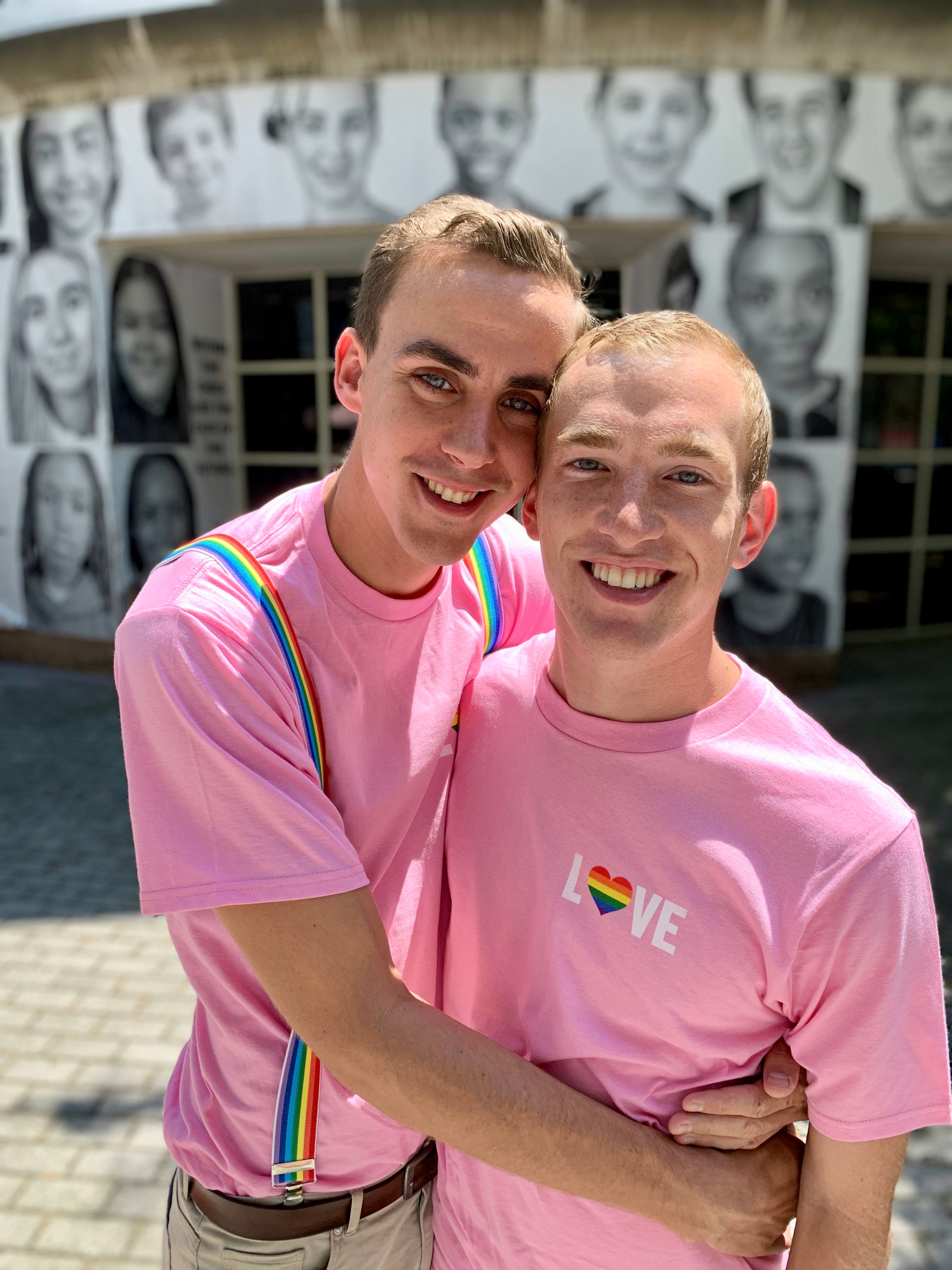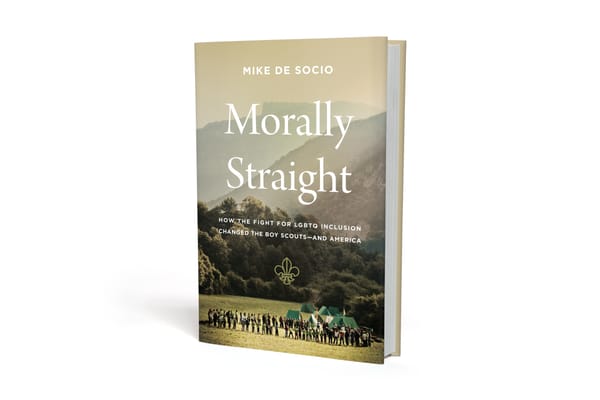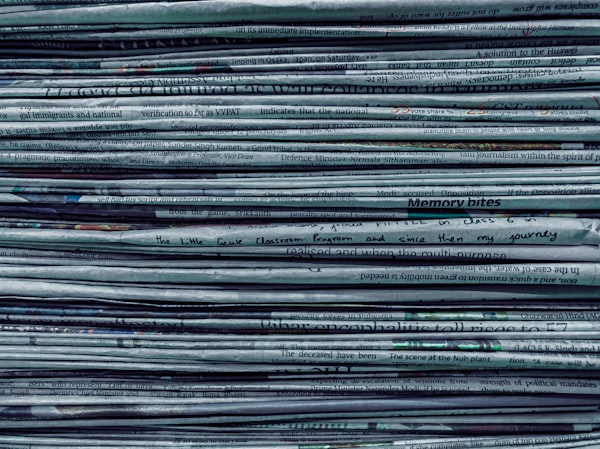"So I’m a homosexual"
How Ryan Jones inspired me to come out in Scouting
Partially adapted from my 2017 essay in HuffPost.
Ryan Jones stood next to me, leaning up against the bar and gazing at the patchwork of vintage memorabilia that adorned the walls. The chatter of our fellow young adult Scouters bounced across the room in a low roar of celebration that another Boy Scout conference had successfully come and gone.
“So I’m a homosexual,” my friend said, his words just barely audible above the cacophony. He turned back toward me and lifted his drink. I rose from my slouch against the counter, raised mine and responded with, “Well, I’m queer” as we clinked glasses.
This moment may seem like just a shared confession, one of many that make up the constant coming-outs of a queer person’s life. But this one was the first time I had ever come out to someone in the world of Scouting.
I didn’t plan on it. Frankly, I surprised myself when I came out to Ryan that night. We knew each other through volunteer work for the Order of the Arrow, Scouting’s national honor society. But we hadn’t yet become particularly close. And up until that point, I considered coming out in Scouting totally unfathomable.
This was 2015, and fresh off the Boy Scouts’ decision to lift its ban on gay adult volunteers like me. And besides, I had only just come out to myself as queer about a year prior. I identified as straight for most of my life, and I never felt closeted, either. It wasn’t until college that I began to move beyond my own assumption of straightness and explore the very idea of sexuality. I soon realized that the label “straight” did not fit me like it once did.
But even as I came to identify as queer and share that with folks in other parts of my life, I felt our Scout uniforms still acted as a cloak against coming out. So I was surprised when I had that conversation at the end of the Boy Scout conference – albeit, not in uniform. Somehow in our corner of the bar that night with loud music and chatter as our shelter, we were compelled to share these truths with each other.
It’s hard to overstate how pivotal this moment was for me in hindsight. Ryan proved that there were, in fact, other people like me in my Scouting circles, and that it was okay to start being open about it.

When I asked Ryan recently to reflect on his experience as a queer person in Scouting, he wrote back to me with this:
“Scouting showed me how to live confidently under my true colors. It taught me to live authentically in my everyday life, by loving myself and trusting that those who matter will do the same.”
I can’t think of a better way to describe what Ryan taught me, too.
And he was right, of course. As I’ve learned to share my truth with more Scouting friends, it’s made every one of those bonds stronger. When I wrote about this experience in HuffPost three years ago, the outpouring of support I received affirmed once again that coming out in Scouting is so essential.
Because when our policies changed to allow LGBTQ folks to participate in Scouting, one thing that didn’t change (at least not right away) was the culture of the organization.
I think people — myself included — often think of the BSA as one big, unified organization marching to the orders set at the very top. But that’s actually not at all how Scouting plays out at the Troop level. I find it more helpful to think of the BSA as a farmer’s market. The market manager can set up the space, lay out some ground rules and authorize each vendor to pitch their tent. But ultimately, the way each vendor operates doesn’t always bend to the preferences of the market manager.
That’s how it goes in Scouting, too. There are some parts of the program — namely, rank advancement — that are indeed unified and non-negotiable whether you’re in rural Oklahoma or downtown Boston. But so much of the culture is a product of local preferences and communities and politics that can’t — and won’t — ever be changed from the top down.
That’s why our personal interactions, our conversations that we have in our troops or at the national Jamboree, matter so much. They have the power to shift perspectives that might one day add up to a more inclusive culture, too.
Got something I should know about? Reply to this email and let me know!
What’s going on in your Troop? How have things changed? What are the challenges that remain for LGBTQ Scouts where you are? I’d love to learn more, and potentially include you and your story in a future newsletter.




